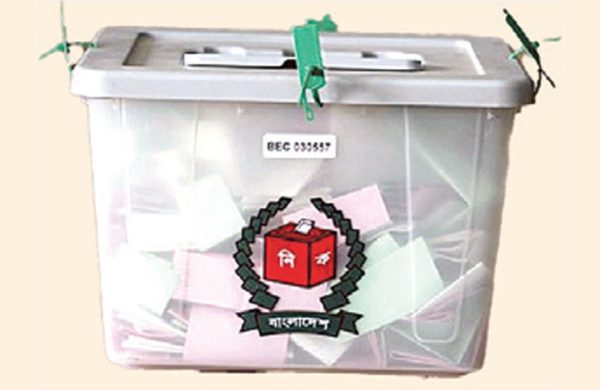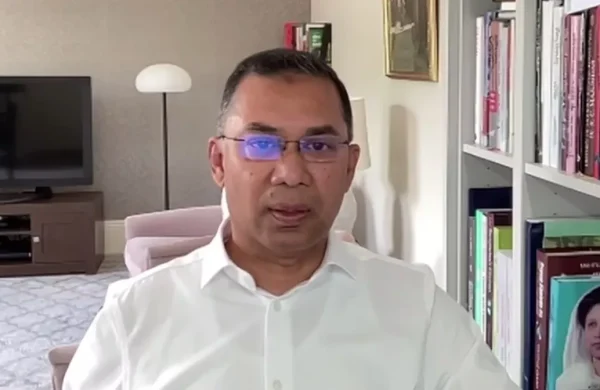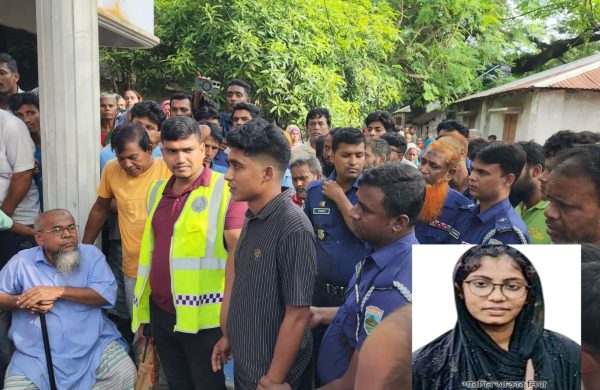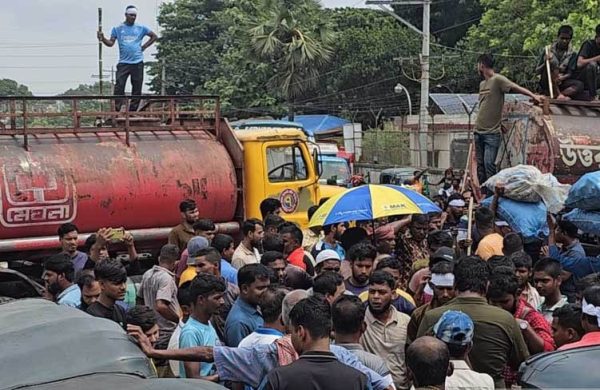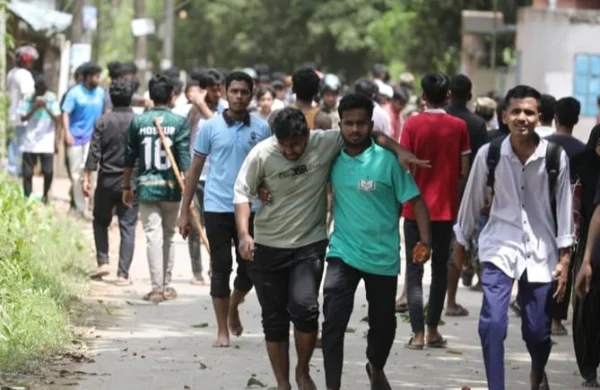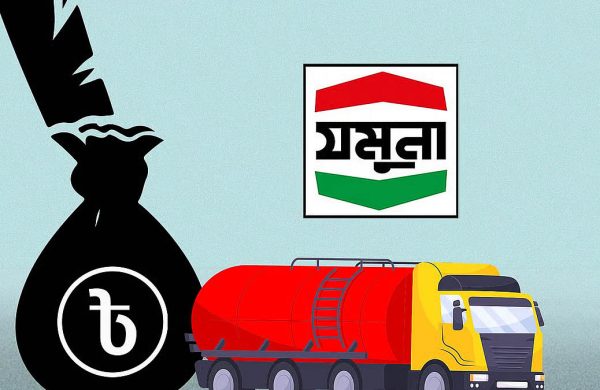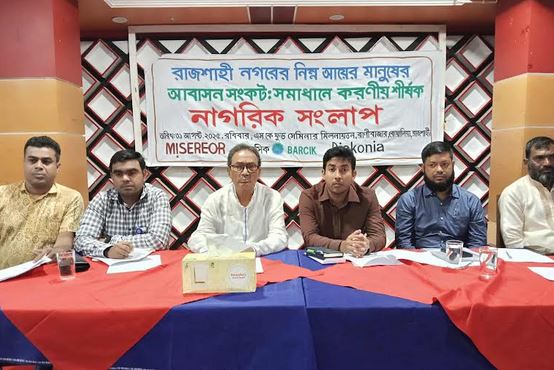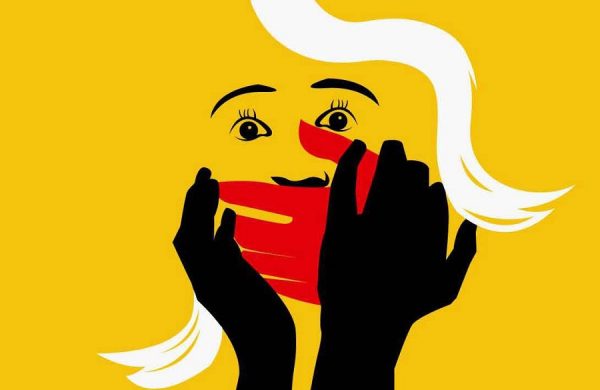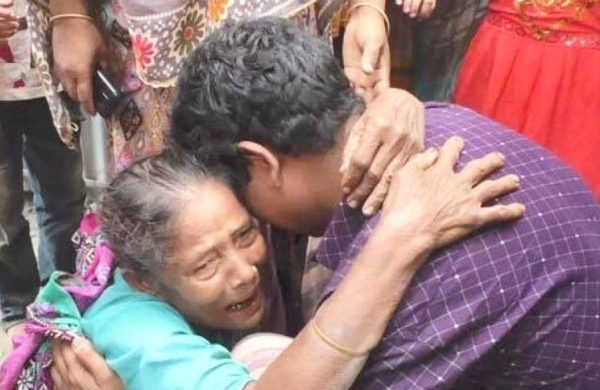Reframing Bangladesh’s Fight against Human Trafficking
- Update Time : Saturday, November 2, 2024

—Kaniz Kakon—
Let us start with a story. Fatima was only 17 when she left her rural home in Bangladesh with a dream of building a better life for her family. Promised a well-paying job as a domestic worker in the Middle East, she borrowed money to pay the required recruitment fees. But upon arrival, her dream shattered: her employer confiscated her passport, restricted her movement, and forced her to work long hours without pay. Fatima became a prisoner, bound not by bars, but by debt and desperation. Stories like hers are echoed across Bangladesh, a country where, despite legal measures, human trafficking remains an insidious challenge that affects thousands like Fatima each year.
The 2024 Trafficking in Persons (TIP) Report acknowledges the Bangladeshi government’s increased investigations, victim identification, and policy amendments. Yet, seen through a human rights lens emphasising dignity, justice, and equality, these efforts reveal gaps in holistic protection. Human trafficking violates the right to freedom, security, and autonomy, demanding a response grounded in human rights theories. A government response that integrates these principles could transform isolated legal actions into a comprehensive solution prioritising the empowerment of survivors like Fatima, while upholding Bangladesh’s commitment to safeguard human dignity and social justice.
A rethinking of trafficking in Bangladesh could benefit from capabilities-based policies, protecting people from vulnerabilities that lead to exploitation. For migrant workers, high recruitment fees perpetuate cycles of debt-based coercion, heightening vulnerability to trafficking. While the government has taken steps to regulate recruitment agencies, it could go further by eliminating recruitment fees altogether, making migration genuinely accessible and safe. Empowering people with freedom from economic constraints aligns with core human rights and reduces conditions enabling trafficking. The current government has an opportunity to design policies that promote economic empowerment, support safe migration, and remove financial barriers that compromise worker autonomy—key steps in tackling the roots of trafficking.
To enhance justice, a justice-based approach underscores the importance of strong legal frameworks that not only prosecute offenders but restore rights to survivors. While Anti-Human Trafficking Tribunals have led to more prosecutions, relying on fines rather than prison terms weakens deterrence. Survivors often face legal barriers, including inadequate support, which hinders redress and leaves them vulnerable. The government could reform these systems by strengthening protections for survivors, investing in legal aid, and expanding trauma-informed training for judicial and law enforcement personnel. Prioritising a justice-centred, victim-first approach would enable survivors like Fatima to engage safely in legal processes, transforming the judicial response from punitive to genuinely restorative.
A rights-based framework encompassing positive and negative rights could help the government address critical gaps in victim support. While positive rights include adequate shelter and psychological support, services remain scarce outside of Dhaka, especially for men and Rohingya survivors. Conversely, negative rights—protection from punitive measures for coerced acts—are often neglected, as victims may face penalties for visa violations or irregular migration status. The government could improve support by dedicating resources to shelter facilities nationwide, ensuring all victims access services without legal repercussions. Respecting positive and negative rights in anti-trafficking measures reflects a commitment to holistic human rights protections, fostering an environment that both empowers and safeguards survivors.
The relative universality theory urges Bangladesh to tailor solutions to the distinct needs of affected populations while upholding universal human rights. The government could consider targeted reforms recognising specific vulnerabilities, such as providing Rohingya refugees with structured access to legal channels to report trafficking. Additionally, policies that reduce rural and marginalised communities’ exposure to trafficking risks could greatly strengthen protections. This balance of universal rights with local responsiveness would allow Bangladesh to address trafficking in diverse populations without compromising the foundational principles of human rights.
The government’s efforts could be enhanced by centring policies on human dignity, prioritising survivors’ rehabilitation, self-worth, and agency. Despite recent policy updates, shelters lack specialised services, leaving survivors without adequate psychological or vocational support. Embracing a dignity-centred approach means expanding access to trauma-informed care, vocational training, and community reintegration services to help survivors rebuild their lives. The current government can significantly improve anti-trafficking outcomes by enhancing survivor support networks, underscoring a commitment to not only addressing trafficking but restoring the human dignity of every survivor.
Integrating human rights theories into Bangladesh’s anti-trafficking strategy could elevate the country’s efforts from fragmented interventions to a cohesive and transformative agenda centred on justice, empowerment, and resilience. This shift would signify not merely a procedural response but a moral commitment, reshaping the government’s approach to one that protects rights and prioritises the restoration of each survivor’s humanity. For survivors like Fatima, such a reimagined policy landscape would offer more than just freedom from exploitation; it would ensure pathways to rebuild lives grounded in dignity, safety, and the genuine hope of a future. This bold approach would place Bangladesh at the forefront of the fight for human rights. Powerful roots reggae band Steel Pulse reminds us in their song titled ‘Human Trafficking’: “A fight we must win… Our heart goes out to the victims. It could be your next of kin.”
_____________________________________
The writer is an Assistant Professor in the Department of Philosophy at IUBAT and pursuing a Masters in Human Rights and Multiculturalism at University of South Eastern Norway




